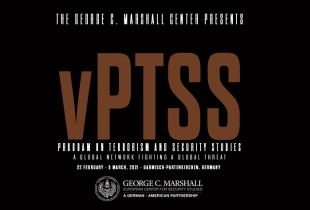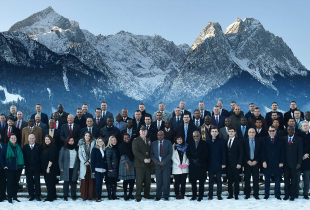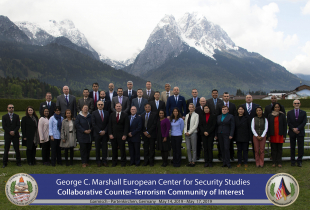
Marshall Center Participants Study Countering Violent Extremism
By Christine June
Public Affairs Office
George C. Marshall European Center for Security Studies
GARMISCH-PARTENKIRCHEN, Germany (July 21, 2016) – Seventy-Six participants from 47 countries study countering violent extremism July 21 in the Program on Terrorism and Security Studies at the George C. Marshall European Center for Security Studies.
To set the theme for the day, Dr. Sam Mullins, Marshall Center’s professor of counterterrorism, gave a presentation on the approaches and challenges of countering violent extremism.
He talked about radicalization linking psychological, social and behavioural factors to emotional reaction. He talked about disengagement, describing push and pull factors. Mullins also discussed six possible options for countering violent extremism, including the ends, ways and means.
Ending his presentation, Mullins talked about the way forward in countering violent extremism such as more cooperation with NGOs, comprehensive strategy and information exchange internally and internationally with NGOs and government agencies.
After Mullins overview, there were two discussion panels on countering violent extremism. Oomar Mubucus, consultant and a group facilitator for West London Initiative and Diversity Project in the United Kingdom, and Alexander Bramman, psychological adviser and personal coach for the Violence Prevention Network in Berlin, were panel members for the first discussion on breaking the cycle of violence extremism and helping young people navigate the risks. Mubin Shaikh, Ph.D. candidate with the University of Liverpool, talked about engaging ISIS extremists on social media, particularly on Twitter, during the afternoon panel discussion on countering violent extremism.
Mullins said that this unit on countering violent extremism objectives were to teach participants to differentiate between disengagement and de-radicalization and to understand the role of disengagement and de-radicalization programs within a broader strategy.
As a four-week resident program, PTSS supports the Marshall Center's increasing emphasis on transnational threats and challenges.


